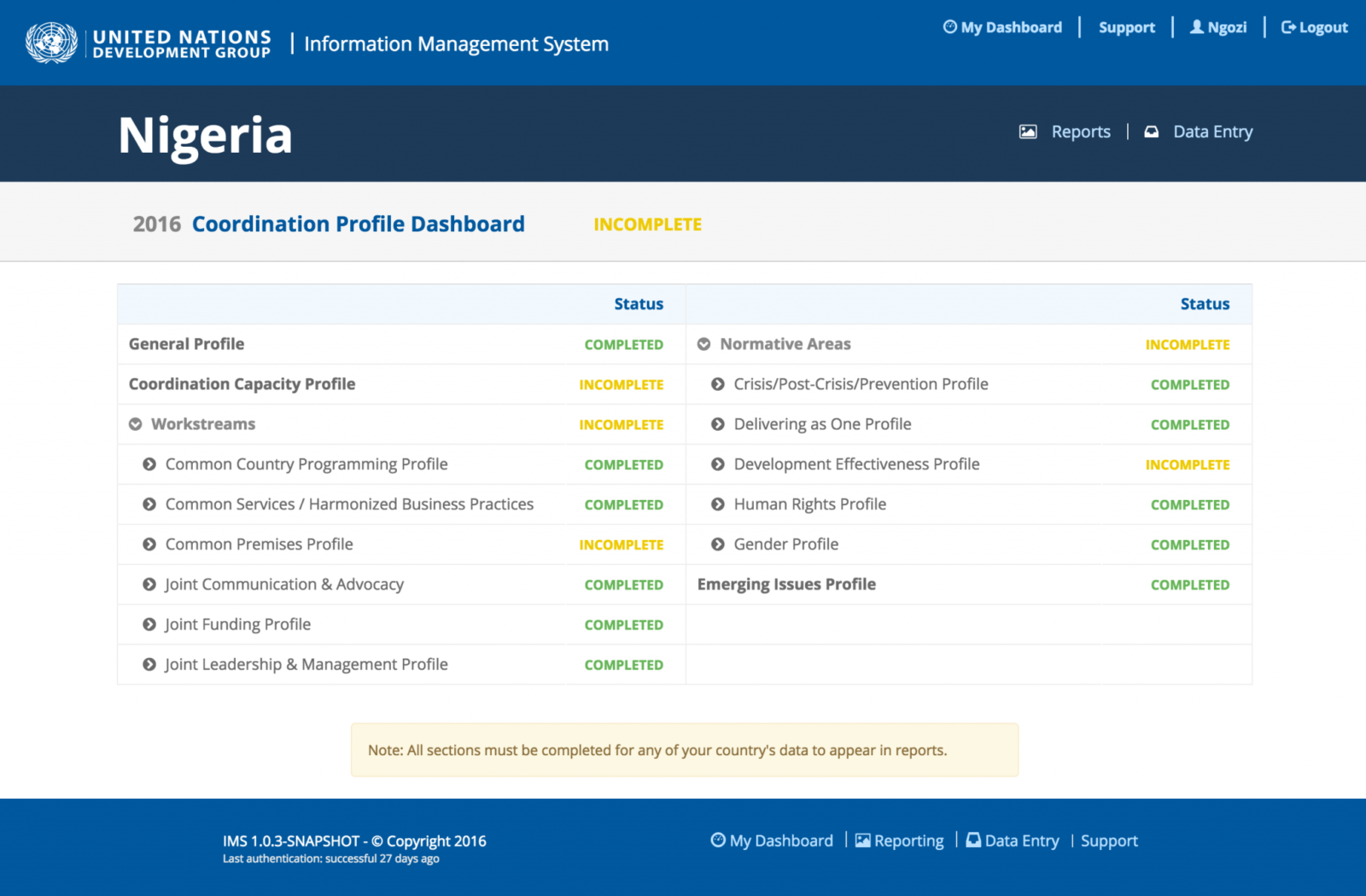Improved Coordination & Knowledge Sharing
The UNDG Information Management System (IMS) is a dynamic web application designed to improve coordination and knowledge sharing among the 130+ global country offices, mechanisms, and departments that make up the UN. The IMS allows for the creation of annual work plans, reporting on progress, and collection of a wide range of indicators tied to the Development Cooperation Office (DCO)’s priority workstreams and goals.
The IMS allows for the creation of annual work plans, reporting on progress, and collection of a wide range of indicators tied to the Development Cooperation Office (DCO)’s priority workstreams and goals. It is the main reference and reporting system for all offices working on coordination within the UN and is tailored to enable data to be entered, collected, and analyzed for a global set of users. In addition to streamlining reporting through a centralized web tool, its API consistently populates coordination information to the main UN website, and it serves as the main contact data repository for all UN country offices working on coordination. It is comprised of two data entry modules tailored to separate reporting structures, which then feed into an integrated reporting module. Users can access reports on composite indicators, dashboard comparisons of key metrics across regions, and ad hoc customized spreadsheets. After data are entered into the system it is then validated by UNHQ and used in high-level reports and programming.
IMS Use
The IMS is used across 130+ UN country teams to report on progress for the DCO’s annual data collection process. The data is then validated by UNHQ and used in high-level reports and programming. Within the first reporting cycle, data from the IMS was already being publicly cited by the head of the UNDP and used to drive high-level policy decisions around initiatives including the SDGs. Specifically, UNDG’s IMS data served as the backbone for the results and coordination data contained in the report “Together Possible: Gearing up for the 2030 Agenda.” DG’s adaptive, flexible process has enabled significant ongoing updates, additions, and removals to the IMS’s data collection and management process across six reporting cycles to date. Its set of reporting tools has also been adapted and expanded with changing DCO needs.

Results
The UNDG IMS is a time-saving, responsive solution to how data is accessed, extracted, and cross-referenced in each country office. Using an agile development process to make changes, DG prioritizes understanding the IMS user base and the specific needs of each office, creating tools to match diverse data management, reporting, and visualization needs.DG has also supported DCO’s transition from an annual reporting process to a rolling process throughout the year, reducing short-term reporting burden and encouraging active system use.
The result of the system has been improved coordination and data management; data visualization and analysis, and intuitive data entry. The IMS reporting module allows for user-centered easy visualization of progress toward goals, comparison of performance across countries or regions, and distinguishing characteristics of individual country offices